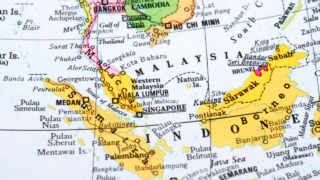The Duterte administration stood to gain from solid macroeconomic fundamentals that, when coupled with its 10-point socioeconomic agenda, would make the country an economic powerhouse in the region, Finance Secretary Carlos G. Dominguez III said.
“The new government’s medium-term plan is to transform the Philippines into an upper middle-income state in six years’ time, and the unparalleled popular support—plus political will—of President Duterte equips him with more than sufficient political capital to carry out the profound reforms in government and the economy necessary to achieve this ambitious goal,” Dominguez said in a statement.
Dominguez earlier told the board of governors of multilateral lenders International Monetary Fund and World Bank the Duterte administration “will never shirk from the challenges of this vital conjuncture” as “it fully intends to transform the economy from a consumption- to an investment-driven one by implementing the tough reforms ranging from the upgrade of its law enforcement capabilities to the long-overdue overhaul of its tax system.”
He said the country has enough elbowroom to undertake these necessary changes.
The Duterte administration wanted to sustain economic growth of at least 7 percent in the next years in order to slash the poverty incidence to 17 percent by 2022 from 26 percent at present, the finance chief said.
“The more important ‘war’ the Duterte administration is waging is on poverty. It is a war we intend to win resoundingly,” according to Dominguez.
In this regard, “the new administration that took power three months ago fully intends to do the difficult reforms ranging from upgrading law enforcement capabilities to modernizing our tax administration,” Dominguez said.
“As the mature industrial economies slow down, we intend to pick up the slack and contribute our fair share in driving growth for the global economy,” he added.
“The great political support and unprecedented popularity ratings President Duterte currently enjoys arm him with more than sufficient political capital to invest in profound reforms of government and the economy. That immense political capital will be deployed judiciously,” Dominguez said.
Unlike the previous administration, Dominguez said he would make sure high economic growth rates would play alongside greater spending for public goods and services, especially vital infrastructure.
“It is time to undertake the economic investments we long postponed. These investments will allow us to move to a higher growth plane and make the Philippines a regional economic leader instead of the region’s laggard,” Dominguez said.


